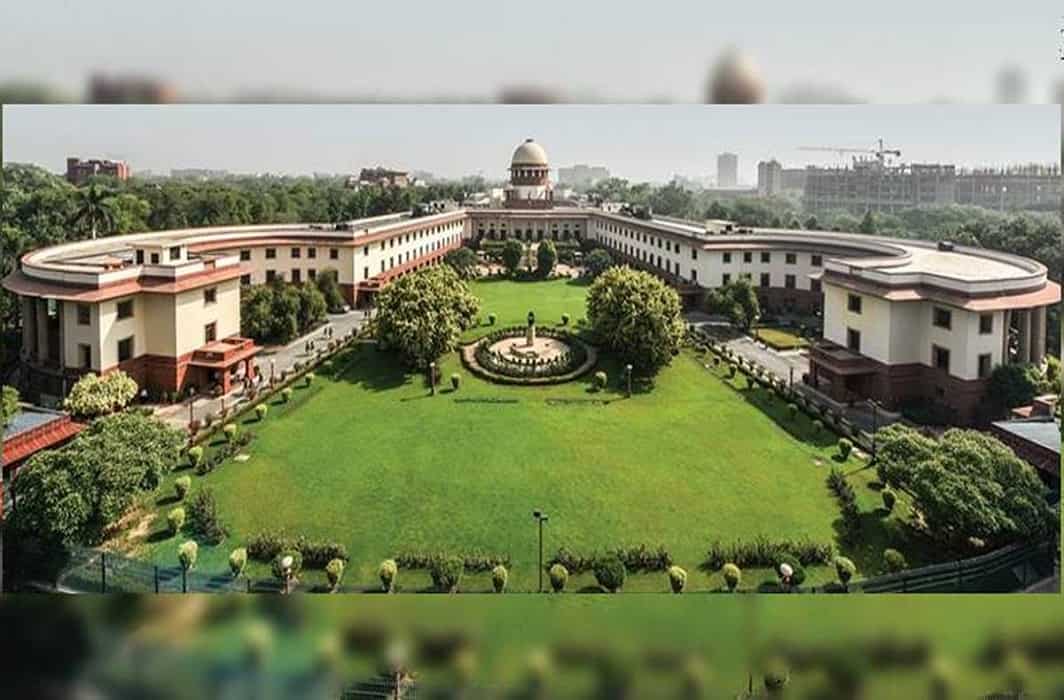New Delhi: The Supreme Court has dismissed a plea filed by district judges seeking appointment as judges of the Madras High Court and challenging recommendations of their juniors for the post. They also sought the clubbing of their experience with the service rendered by them as judicial officers for determining their eligibility.
A three-judge bench of CJI S.A. Bobde, Justice A.S. Bopanna and Justice V. Ramasubramanian heard the plea filed by District Judges (entry level) appointed by way of direct recruitment in 2011 in the Tamil Nadu State Judicial Service. The plea sought quashing of the list of names recommended by the Chief Justice of the High Court of Madras to the Chief Justice of India for appointment as Judges of the Madras High Court.
The petitioners also sought directions to the Madras High Court Collegium to consider the names of the petitioners also for appointment as high court judges.

The grievance of the petitioners was that despite being the senior-most in the cadre of district judges, they have been overlooked and their juniors have been recommended for elevation to the High Court as judges, by the Collegium of the high court. According to the petitioners, it’s been done solely on the application of Explanation (a) under Article 217(2) of the Constitution of India, but to determine the eligibility of a person, subclauses (a) and (b) of clause (2) of Article 217 together with Explanations (a) and (aa) should be applied simultaneously.
The petitioners, therefore, contended that the experience gained by them as advocates should be clubbed with the service rendered by them as Judicial Officers, for determining their eligibility. Once this clubbing is allowed, the Petitioner District Judges could take advantage of their settled seniority position in the cadre of District Judges, over their juniors whose names have been recommended.
The court observed that Article 217(2) only prescribes the eligibility criteria and the method of computation. There are 2 separate queues, one from the judicial service and another from the bar. If a person is found to have satisfied the eligibility criteria, then he must take his place in one of the queues. One cannot stand in one queue by virtue of his status on the date of consideration of his name for elevation and at the same time keep a towel in the other queue, so that he can claim to be within the zone of consideration from either of the two or from a combination of both.
The Court observed that the queue to which a person is assigned, depends upon his status on the date of consideration. So if a person is an advocate on the date of consideration, he can take his place only in the queue meant for members of the bar and if a person is a judicial officer on the date of consideration, he shall take his chance only in the queue meant for service candidates.
“Hopping on and hopping off from one queue to the other, is not permissible. Today, if any of the petitioners cease to be Judicial Officers and become advocates, they may be eligible to be considered against the quota intended for the bar. But while continuing as judicial officers, they cannot seek to invoke Explanation (a) as it applies only to those who have become advocates after having held a judicial office,” the Court said.
Read Also: The Powerful Triumvirate
The court also held that the argument that it will be discriminatory to allow the benefit of clubbing only to a person who held a judicial office and later became an advocate, isn’t valid. Article 217(2) does not guarantee anyone with the right to be appointed as a judge of the High Court. In a way, a person holding a judicial office is better placed, as he is assured of a career progression, there is no such assurance for an advocate.
Read the order here;
32132_2019_31_1501_23782_Judgement_04-Sep-2020-India Legal Bureau


